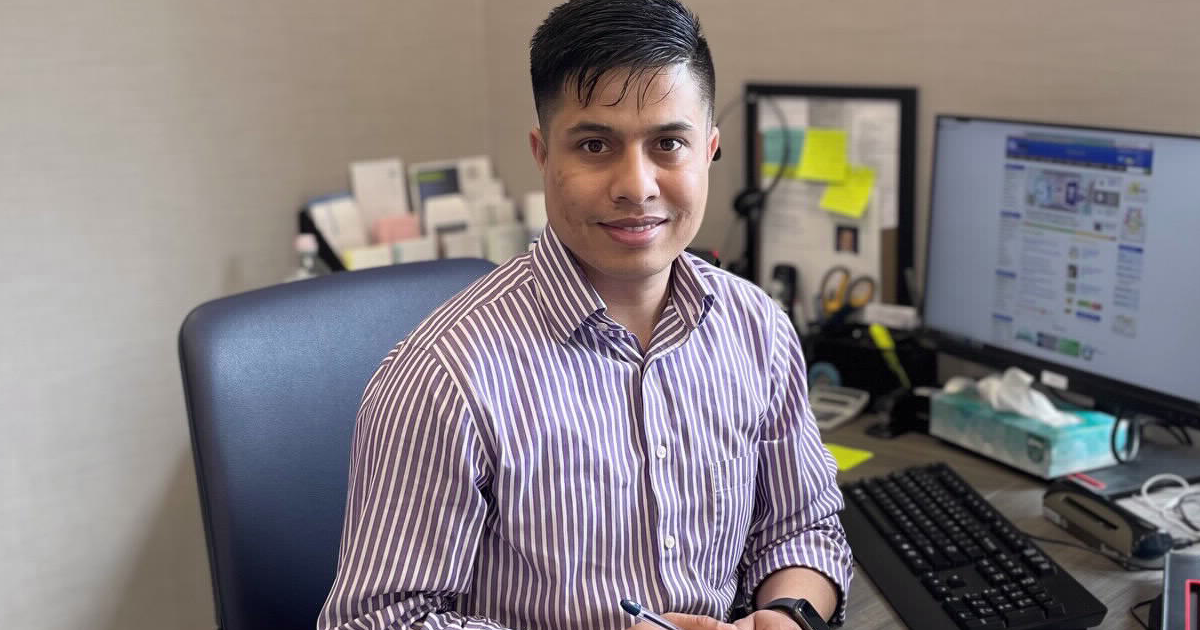May 2022
In recognition of Asia American and Pacific Islander Heritage Month, we would like to introduce you to a few ESL employees who took the time to share thoughts about their career journey here at ESL. Their stories are an inspiration to us all, and we are proud of their accomplishments! Once you learn more about them, learn more about our continued commitment to creating and maintaining a diverse workplace that provides equitable growth opportunities for all employees.

Why do you think it’s important for companies and their employees to recognize and celebrate Asian American and Pacific Islander Awareness Heritage Month?
I think it’s important for organizations to recognize diversity and heritage months because it highlights the importance of diversity and inclusion in the workplace. I believe that an organization’s diversity not only helps promote fair employment practices but also helps increase creativity and problem solving since everyone’s perspective is unique.
Tell us about your role at ESL.
I have been with ESL for about seven and a half years. I started in September 2014 as an Advanced Hire Teller and currently I am working as a Bilingual (Nepali/English) Relationship Banker at the Lake Avenue office. Prior to my current position, I worked as a Teller I, Teller II, Senior Teller, and a Relationship Banker.
How has ESL helped you grow and reach the position you’re in today?
My managers have always inspired and supported me to advance my career. The company-funded tuition aid helped me financially to pursue a degree in higher education, which has always been great support for my career development. Professional development programs have also always been very helpful.
What stands out the most about ESL, for you?
One thing I think that stands out about ESL to me is the people. Employees here are all team players. Everyone is willing to help each other and willing to provide the best experience to both members as well as to the employees.
Share something unique about your own career experiences.
I was born in Bhutan but raised in a refugee camp called Goldhap Jhapa in Nepal. Without the help of the United Nations High Commissioner for Refugees (UNHCR), I wouldn’t have survived. My family completely relied on this organization for daily meals and supplies. I depended on it for my education. During our time in the refugee camp, we felt powerless because the resources and opportunities available were limited. I realized that somehow, we would have to leave the camp to improve our lives.
With the help of the International Organization for Migration (IOM), I left the refugee camp in November 2013 and took advantage of the opportunity to emigrate. It was hard for me to leave my family behind in Nepal, but I had no other choice. I couldn’t afford to miss this precious chance to come to America and fulfill my dreams.
Once I arrived in America, I thought my difficult times were behind me forever, but I faced a new set of harsh challenges. In Nepal I could speak the language and communicate clearly, but in America, I barely spoke or understood the language. I couldn’t interact with new people in this foreign place. I struggled as soon as I stepped foot in this country. My self-esteem was at an all-time low. I drowned in the flood of unintelligible English language, but I had confidence that I would do better here.
All the obstacles I faced as a refugee and a new American have made me who I am today. Every challenge has given me the strength and opportunity to grow; if I hadn’t left the refugee camp, I would have never seen America. If I hadn’t struggled here, I wouldn’t have the depth of compassion for others who struggle and I wouldn’t have gained the courage to speak up for myself and for others who cannot stand up for themselves.
Despite the obstacles, I found a way to overcome the difficulties in my life. Now I can use my education to help those who are marginalized because they cannot speak English. As I pursue higher education, I hope to find new ways to fulfill my own dreams as well as to serve my fellow man.
What advice or tips would you share with others in the community, whether it be job seekers or just people in general?
First ask yourself what you want to be and why? Never stop learning. You may fail and get rejected multiple times, but do not stop. As great scientist and late president of India, A.P.J Abdul Kalam said, “if you get NO as an answer, remember NO means Next Opportunity.” Keep trying until you succeed.
What else would you like to say that you think is important for people to know?
I am very fortunate to be a part of this great company. My presence in this community is visible because, as a member of the Bhutanese Community of Greater Rochester; I communicate daily with professionals and other stakeholders to develop and implement policies to uplift the socio-economic status of this minority population. Rochester has a large population of Nepali-speaking, ethnic, and cultural community members; most of whom have found ESL Federal Credit Union to be their primary choice for Personal and Business Banking. I have personally witnessed a large population of this community banking with ESL because it is easier for many of them to communicate and work with me.
